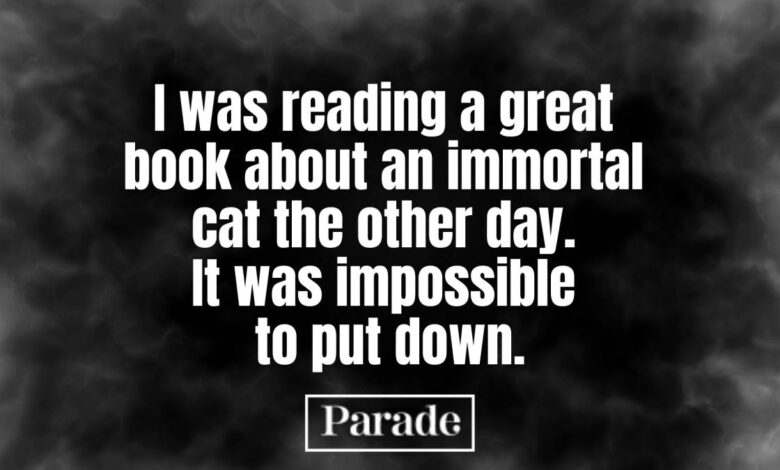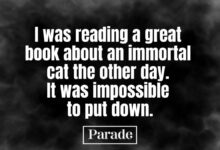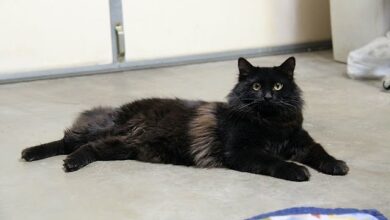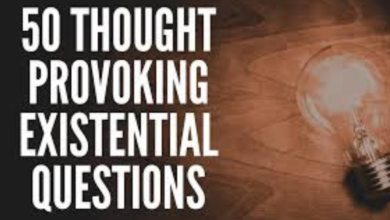The Depth and Danger of Dark Jokes: A Dive into Humour’s Shadow

Understanding the Appeal of Dark Jokes
Dark jokes occupy a strange and often polarizing corner of comedy. They straddle a delicate line between humour and horror, comfort and discomfort. For some, dark jokes are a way to cope with harsh realities. For others, they push boundaries too far. The very nature of it is to tread into sensitive or taboo topics, but they do so with a twist of wit that can be oddly freeing. There’s an unspoken agreement in such humour: we laugh not because we dismiss the gravity of the subject, but because it’s a shared way to acknowledge the darkness in life.
Many comedians and writers use dark jokes as a therapeutic outlet. It’s not about glorifying pain but transforming it into a punchline that resonates with people who have experienced their forms of struggle. The structure of a good dark joke is often sharp and incisive, using irony, exaggeration, or a brutally honest perspective to make its point. There’s also a paradox here: the darker the joke, the more intelligent it often has to be. The stakes are higher, and so the humour must be more carefully crafted.
The Psychology Behind Dark Jokes
Why do some people laugh at things others find horrifying? The psychology behind dark jokes is as complex as the humour itself. According to many psychologists and humour theorists, laughing at it doesn’t mean someone is insensitive or cruel. Instead, it often signifies a high level of emotional intelligence and mental resilience. People who appreciate it tend to process difficult emotions through satire and wit rather than denial or despair.
Dark jokes allow us to create distance between ourselves and the worst parts of life. It’s a way to gain a little control over fear and uncertainty. In laughing at tragedy, we aren’t mocking the victim but asserting our survival. For example, a joke about the absurdity of death isn’t making light of loss; it’s often about the futility of trying to make sense of mortality. This reframing can be both empowering and cathartic.
Dark Jokes in Historical Context
Humour has always had a dark side. Even in ancient civilisations, people told jokes about death, illness, and suffering. In wartime, dark jokes became especially prominent, as soldiers and civilians alike used humour to cope with trauma. Satirical plays in ancient Greece and Rome often poked fun at plagues, political assassinations, and other dark events. These weren’t just for laughs—they were a mirror to society’s underbelly.
During the rise of modern stand-up, it became a tool for political and social commentary. Comedians used their platforms to highlight injustice, oppression, and the absurdities of existence. In this way, dark jokes evolved from mere entertainment into a form of protest and reflection. They challenge the audience to question their comfort zones and to think critically about the world around them.
The Thin Line Between Funny and Offensive
One of the biggest controversies surrounding dark jokes is their potential to offend. Because they deal with taboo subjects, they run the risk of being seen as tasteless or inappropriate. The key difference often lies in intent and delivery. A well-crafted dark joke can make people think, while a poorly constructed one can alienate or hurt. Timing, tone, and context all play significant roles.
Comedians and writers who specialise in it often walk a tightrope. They need to understand their audience deeply and be acutely aware of cultural sensitivities. What’s acceptable in one context might be completely out of bounds in another. That’s why successful dark jokes usually come from a place of empathy or shared experience. When a joke punches up rather than down, it’s more likely to resonate than to offend.
Dark Jokes as a Coping Mechanism
For many, dark jokes are more than just humour—they’re survival tools. In hospitals, police departments, and military units, it are part of the culture. When professionals face trauma regularly, humour becomes a shield. These jokes aren’t about being disrespectful. They’re about maintaining sanity in environments that are often emotionally overwhelming.
This kind of humour helps people compartmentalise difficult emotions. It allows them to connect with colleagues who understand the unspoken weight of their work. Laughter becomes a form of solidarity. In these settings, dark jokes don’t trivialise suffering—they honour the emotional endurance it takes to face hardship head-on.
The Art of Writing Dark Jokes
Creating effective dark jokes requires more than just shock value. It’s an art form that demands wit, empathy, and a deep understanding of human nature. The best it don’t just provoke—they invite reflection. They make the audience think twice about something they usually try to avoid thinking about. That’s where their power lies.
Writers and comedians who excel in this genre often spend a lot of time refining their material. They test their jokes in small rooms, watch audience reactions closely, and adjust accordingly. It’s a high-risk, high-reward form of comedy. The right dark joke can become legendary. The wrong one can end a career. That’s why true masters of the form treat it with both reverence and daring.
Popular Examples in Media
Dark jokes aren’t confined to stand-up comedy—they’re embedded in films, TV shows, books, and even memes. Shows like BoJack Horseman, The Office, and Rick and Morty have gained acclaim for their use of dark humour. These narratives often tackle subjects like addiction, depression, or existential dread, but do so with a comedic spin that makes them relatable.
Writers in these media use it to add depth to their characters and stories. They create moments of levity in otherwise heavy narratives. This balance is essential for keeping the audience engaged. When done well, dark jokes add texture to a story—they make it more human. They allow viewers or readers to confront difficult truths without being overwhelmed.
Cultural Differences and Global Reception
Dark jokes don’t translate the same way across cultures. What’s hilarious in one country might be completely inappropriate in another. This isn’t just about language—it’s about shared experiences and cultural norms. In some societies, death and suffering are openly discussed. In others, they’re taboo. This affects how dark jokes are received.
Comedians who tour internationally often adjust their material depending on where they perform. They learn the unspoken rules of each audience and tailor their jokes accordingly. It’s a challenge, but it also shows the universality of humour. Even when the details differ, the core emotions behind dark jokes—fear, confusion, defiance—are shared by people everywhere.
The Role of Social Media in Spreading Dark Jokes
Social media has given dark jokes a new home. Platforms like Twitter, Reddit, and TikTok are flooded with memes and posts that rely on this kind of humour. Some of these jokes go viral precisely because they shock or surprise. But this virality can be a double-edged sword. Jokes that were meant for a niche audience can suddenly reach people who don’t understand the context.
This has led to debates about censorship and free speech. Should dark jokes be banned if they upset people? Or should they be protected as expressions of creativity and coping? There’s no easy answer. But what’s clear is that the internet has democratized humor. Anyone can tell a dark joke. But not everyone can do it well.
When Dark Jokes Go Too Far
There are times when dark jokes cross a line. They can reinforce harmful stereotypes, trivialise serious issues, or trigger painful memories. That’s why it’s crucial for comedians and content creators to self-reflect. Not every joke needs to be told. And not every laugh is worth the cost.
This doesn’t mean dark jokes should be abolished. But it does mean they should be handled responsibly. Humour is powerful—it can heal or harm. The difference often comes down to intention and awareness. A joke that comes from a place of understanding is more likely to land than one that comes from ignorance.
Dark Jokes and Ethical Storytelling
In storytelling, dark jokes can be used to explore moral ambiguity. Characters who joke about grim realities often reveal their inner turmoil or worldview. This adds complexity and realism to the narrative. It also gives the audience a window into how people process trauma and fear.
Writers who use dark jokes in fiction must balance levity with gravity. They can’t rely on shock alone. The humour needs to serve the story, not distract from it. When done right, these jokes enhance the narrative. They make it more authentic, more poignant, and more memorable.
Conclusion: Embracing the Shadows with Laughter
Dark jokes are not for everyone, and that’s okay. They’re a unique blend of comedy and catharsis, reflection and rebellion. They invite us to look at the things we fear most and find a spark of absurdity in them. They’re not about making light of tragedy—they’re about finding light in the midst of it.
Used thoughtfully, dark jokes can be a tool for empathy, understanding, and healing. They challenge us to rethink our assumptions, to confront discomfort, and to connect through shared vulnerability. Whether whispered in a hospital break room, performed on stage, or shared in a meme, dark jokes push the boundaries of humour.





